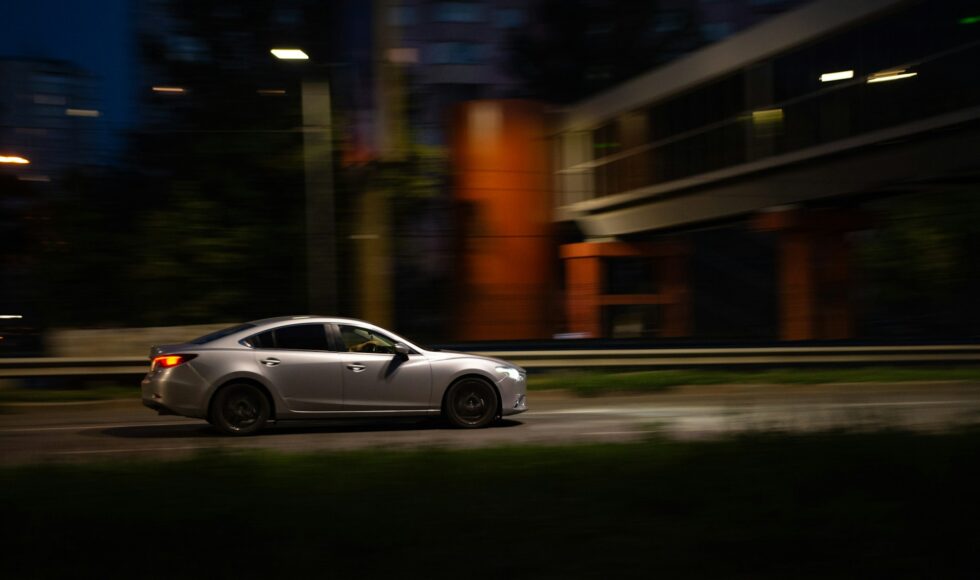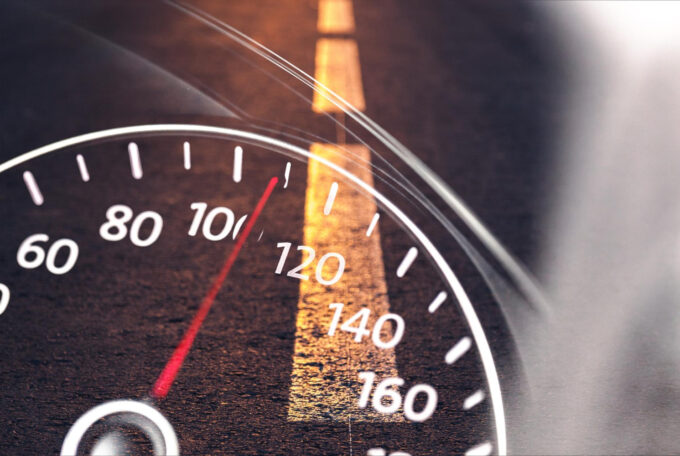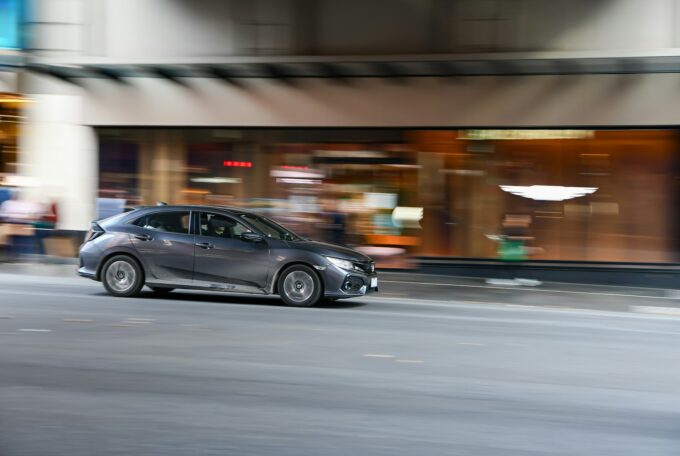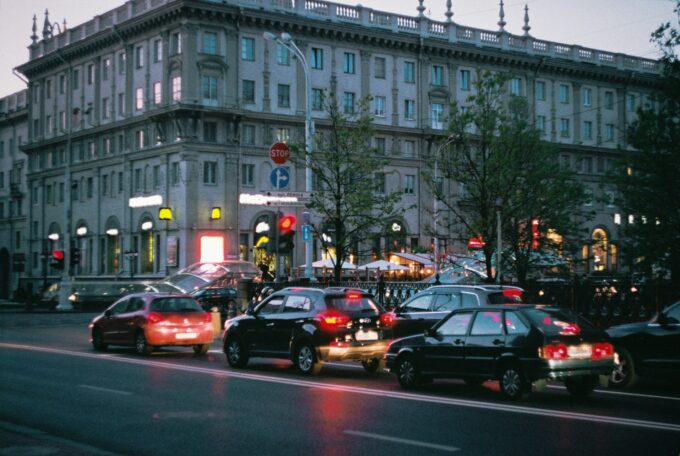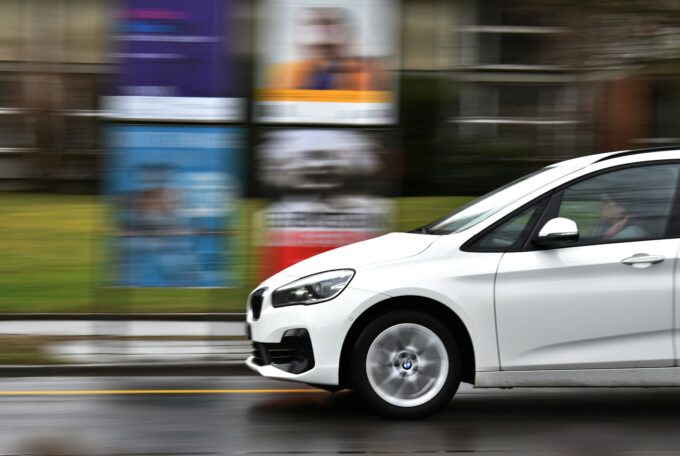Night-time driving in Louisiana can feel different from the usual daytime routine. The roads are darker, traffic patterns shift, and drivers may find themselves going faster than intended without realizing it. For commercial drivers especially, long nighttime shifts can raise the chances of a speeding ticket. These tickets can carry more weight than expected and lead to much more than just a fine.
Whether you’re behind the wheel of a delivery truck or hauling freight across the state, it’s important to be prepared. Defending against speeding tickets that happen at night means knowing how these tickets come about, what risks lead up to them, and what problems they can cause if not handled right. Keeping your driving record clean starts with knowing what to look out for when driving after dark.
Risks of Night-Time Driving
Driving at night in Louisiana brings a unique set of challenges, and those challenges can easily lead to speeding tickets. One of the biggest concerns is low visibility. Headlights only show so much of the road ahead, and without street lighting on more rural routes, it’s easy to misjudge speed or miss a changing speed limit sign altogether.
Fatigue is another problem. Driving late into the night means your body is working against its natural sleep cycle. Reaction times tend to slow down, and concentration drops. Even the most experienced drivers can become less aware of how fast they’re going. Add distractions like phone screens or GPS instructions, and the room for error only widens.
Weather plays a role too. At night, drivers have a harder time seeing rain, fog, or black ice ahead. That lack of warning often causes drivers to unknowingly adjust their speed too late, resulting in a violation. And sometimes in cities or well-lit areas, drivers feel more confident and end up accelerating without realizing they’ve gone over the limit.
For commercial drivers behind the wheel for long hauls, these night risks can pile up fast and lead to repeat violations. Tired eyes may overlook dashboard alerts or miss the drop in a posted speed limit. What starts as a simple oversight can turn into points on a license or even lead to suspended driving privileges if not dealt with fast.
Common Night-Time Speeding Scenarios
There are some typical situations where speeding tickets become more common at night, especially for drivers who work long service hours or travel across rural parts of Louisiana.
Here are a few scenarios that often lead to night-time speeding tickets:
1. Open highways with little or no traffic: It’s easy to zone out late at night on an empty stretch of road. Without many cars around, drivers may unconsciously drive faster than the posted limit.
2. Transition zones entering cities or neighborhoods: Speed limits often change fast when moving from rural to populated areas. At night, these changes are harder to spot, especially when signs aren’t reflective or well-lit.
3. Long hauls between deliveries: Commercial drivers may try to make up time by speeding after a delay earlier in the route. Night hours can feel like the best time to push through, but that’s where tickets often come in.
4. Stormy or foggy weather: Visibility drops sharply at night in rough weather. Drivers attempting to maintain pace may end up speeding because they can’t see the road or signs clearly.
5. Rest stop exits or re-entries: Drivers heading back to the road after a short nap or meal may accelerate too quickly onto a highway, not realizing they’re still in a low-speed zone near the ramp.
These examples show that night-time driving creates several points where speed can creep past the limit without much warning. Recognizing these situations helps drivers stay alert and make better decisions to avoid violations. Mistakes made in the dark are just as costly, if not more, than those during daylight hours.
Legal Consequences for Speeding at Night
Speeding tickets that happen after dark in Louisiana can lead to real problems, especially for commercial drivers. Law enforcement takes these violations seriously, and the penalties can stack up fast. Depending on how fast you were going, you might face steep fines, court appearances, and points on your license. If you’re driving a commercial vehicle, those points could put your job at risk or limit where you’re allowed to drive.
Louisiana doesn’t treat night-time driving violations much differently than daytime ones on paper, but they can carry different weight in practice. Officers may have less tolerance for errors at night because visibility is lower and risks are higher. Speeding in a construction zone after dark is even more likely to bring heavier consequences since workers might still be present and more difficult to see.
For commercial drivers, a violation doesn’t just stop at the ticket. Some employers require clean records to stay on certain routes or drive specific types of cargo. Getting caught speeding in a commercial vehicle can also show up on federal driving records, which may follow you from one job to another. Even a single charge that looks minor can leave a mark and cause lasting trouble for your career.
Some night-time stops include added charges if officers believe the driver’s speed created a safety hazard for others on the road. If conditions were rainy, visibility was poor, or the road had a lot of curves, an officer might argue that your speed was reckless even if it wasn’t much over the limit. That’s where small mistakes can start to snowball into more serious legal problems.
How to Handle a Night-Time Speeding Charge
Dealing with a night-time speeding ticket can feel stressful, but how you respond to it makes a big difference. With the right steps and timing, there’s usually a way to fight back or lessen the impact. Some drivers make the mistake of paying the ticket right away just to get it over with. That quick decision can work against you if it adds points to your license or flags your name in employer records.
Instead, take the time to understand how the ticket was issued. Was the area clearly marked? Were the speed signs easy to see at night? Was the weather a factor that might’ve affected visibility or judgment? These kinds of details can help shape your defense when challenging the ticket in court.
Here are a few ways to build a stronger defense:
– Review your driving logs and dash cam footage, if available
– Check for road design flaws or faded speed signs that were hard to see at night
– Gather any witness reports from passengers or other drivers
– Examine local weather data for fog, rain, or low visibility during the time of the ticket
– Confirm if the radar or speed detection tools were used properly
Some commercial drivers also attend court with legal representation, especially if the ticket could lead to job loss or license suspension. Judges are often willing to listen to a solid explanation, and having support can help you avoid worst-case outcomes. Fighting the ticket doesn’t mean lying or denying you were speeding. It just means showing there may have been valid reasons or that better options exist than adding points to your record.
Tips to Avoid Speeding Tickets After Dark
Staying safe and ticket-free during night driving often comes down to planning, awareness, and using the tools available. You can’t control what happens on the road, but you can take steps to reduce your risks.
Keep these tips in mind next time you’re behind the wheel at night:
1. Keep your headlights clean and properly aimed to improve road visibility and catch signs early
2. Use dash cameras and GPS that alert you when speed limits change or traffic enforcement areas pop up
3. Stick to familiar routes when possible, especially if you’re tired or the weather is bad
4. Don’t rely solely on cruise control at night, since changing speeds can catch you off guard
5. Take short breaks when you feel fatigue setting in even a brief stop can refresh your focus
6. Watch for speed changes when entering places like rest stops, construction zones, or city limits
One driver heading from Shreveport to Baton Rouge said he got ticketed just after passing a sleepy intersection that led into a small town. There was no warning about the speed drop ahead, and it caught him off guard. Since then, he double-checks route maps ahead of every trip and uses audible alerts from his GPS to notify him when limits change. Small habits like that go a long way when you’re trying to keep tickets off your record.
Don’t Let the Darkness Cost You Your License
It’s easy to think a speeding ticket isn’t a big deal, especially when it happens during a quiet night drive. But ignoring it or paying the fine without looking further can lead to bigger headaches down the line. Speeding tickets affect more than your wallet. They appear on your driving record, influence your job status, and even impact future insurance quotes.
Driving at night boosts the odds of missing speed limit signs, responding slower, or misjudging safe speeds. These aren’t rare problems. They happen to both new and experienced drivers. The good news is that a single mistake doesn’t have to spiral into something bigger.
It helps to pay attention to your surroundings, make smart choices, take breaks, and stay on top of your equipment. If you do get a ticket, acting quickly and getting help can protect your license and save you from long-term damage. Speeding at night may seem like a quiet infraction, but when you’re driving for a living, no violation is small.
It’s important to keep your driving record clear when night-time tickets come into play. Whether you’re navigating rural roads or urban streets, facing such a ticket can be challenging. To better understand and handle your speeding ticket defense, LouisianaSpeedingTicket.com is here to help. With years of experience, we’re committed to assisting drivers across Louisiana in securing the best possible outcomes.

